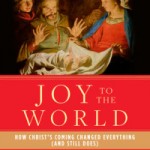B16 today on the Year of Faith and our lives:
The fiftieth anniversary of the opening of the Second Vatican Council is an important occasion to return to God, to deepen and live with greater courage one’s own faith, to strengthen membership of the Church, “the teacher of humanity,” which, through the proclamation of the Word, the celebration of the Sacraments and the work of charity leads us to encounter and know Christ, true God and true man. This is not an encounter with an idea or a life plan, but a living Person who deeply transforms us, revealing to us our true identity as children of God. Our encounter with Christ renews our human relationships, guiding them, day by day, to greater solidarity and fraternity, in the logic of love. Having faith in the Lord is not something that affects only our intelligence, the area of intellectual knowledge, but it is a change that involves life, all of our being: feelings, heart, intellect, will, body, emotions, human relationships. With faith everything really changes everything in us and for us, and our future destiny is clearly revealed, the truth of our vocation in history, the meaning of life, the joy of being a pilgrim towards the heavenly Kingdom.
He continues:
Even today the Creed needs to be better known, understood and prayed. Above all it is important that the Creed is, so to speak, ‘recognized’. In fact, knowing it, could only be an intellectual operation, while “recognizing” it means the need to discover the deep connection between the truths we profess in the Creed and our daily lives, so that these truths may truly and effectively be – as they always were – light for the steps to our living, water that irrigates the scorching heat of our journey, life that conquers certain deserts of contemporary life. The moral life of the Christian is interwoven in the Creed, in which it finds its foundation and justification.It is no accident that the Blessed John Paul II wished that the Catechism of the Catholic Church, a sure norm for teaching the faith and reliable source for a catechesis renewed at the sources of faith, be set on the Creed. This was to confirm and protect this core of the truths of faith, rendering it in a language that is more intelligible to the people of our time. It is the Churches’ duty to transmit the faith, communicate the Gospel, so that the truths of Christianity illuminate new cultural transformations, and Christians be able to account for the hope that carry (cf. 1 Pt 3:14). Today we live in a profoundly changed society even compared to the recent past and one that is in constant motion. The processes of secularization and a widespread nihilistic mentality, where everything is relative, have a crucial impact on the general mentality. So, life is often lived lightly, without clear ideals or sound hopes, in transient and provisional social and family ties. Above all the younger generations are not educated in the search for truth or the deeper meaning of existence that goes beyond the contingent, to a stability of affection, trust. On the contrary, relativism leads to not having any fixed points, suspicion and inconstancy cause ruptures in human relationships, and life is lived in experiments that do not last long, or shoulder any responsibilities. If individualism and relativism seem to dominate the mind of many of contemporaries, we can not say that believers remain totally immune from these dangers, with which we are confronted in the transmission of the faith. The survey promoted in all continents for the celebration of the Synod of Bishops on the New Evangelization, has highlighted some: a living faith that is passive and private, rejection of faith formation, the rupture between faith and life.
It’s about knowing what it is to be who we claim to be. More here.











